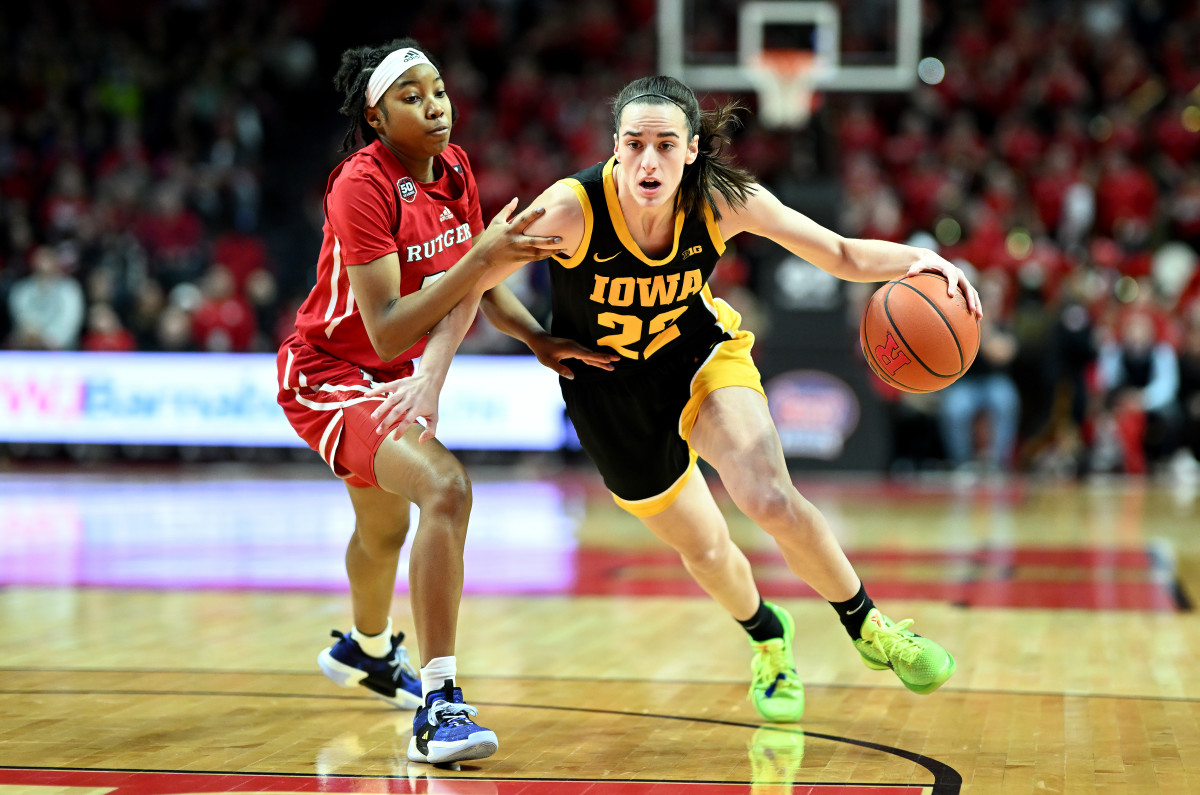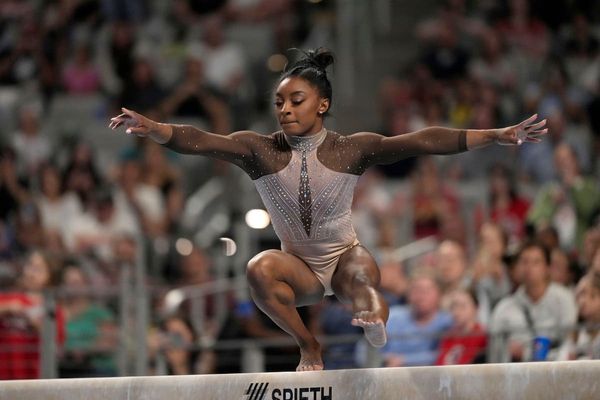
The NCAA and ESPN struck a monumental deal last week which will have 40 NCAA Championships broadcast on the sports network.
The eight-year, $920 million deal — or about $115 million annually — is a steep increase over the $34 million per year for 29 championships that the two sides had since 2011. The deal starts on Sept. 1, 2024, and includes 21 women's sports championships and 19 on the men's side.
One key inclusion in the bundle of 40 is NCAA women's basketball, which coaches like Dawn Staley believed could have been a standalone product given its surging popularity.
The final game of the 2023 NCAA Women's March Madness tournament between the LSU Tigers and the Iowa Hawkeyes saw an average of 9.9 million viewers, the most in the history of the tournament. For perspective, that number for the NCAA Women's Basketball final was higher than the average viewership of the 2023 Major League Baseball World Series, granted it was for a single-game title match.
NCAA president Charlie Baker did say that the new deal still puts a $65 million valuation on the women's basketball tournament alone — which is 10x more than its valuation as of this current deal and takes up 56.5% of the cost of the deal.
ESPN clearly believes in NCAA women's sports, as top executive Burke Magnus spoke about in August.
“I think it’s going to be another leap for women’s basketball deeper into the regular season,” Magnus said. “I think softball and volleyball in particular have just started to scratch the surface.”
But why did ESPN or the NCAA decide to keep it bundled together with the other leagues? And what does this mean for the potential growth of the women's basketball championship?
To answer those questions, TheStreet spoke to Daniel Kirschner, CEO of Greenfly, a software company that works with sports leagues and teams to provide short form content, which has given him what he calls a "front row seat" to the evolving media landscape in sports.
What is the justification for ESPN and the NCAA to keep the championships bundled?
There are several reasons the NCAA could've benefited from separating the women's championship, which Kirschner called "the crown jewel" of the package.
The NCAA may have been able to ask for more money for the women's championship on its own, and Kirschner said that it could have also gone the route of having multiple media partners similar to what the NFL is doing.
But ultimately, Kirschner believes the NCAA likely valued how women's basketball could raise the floor for the other leagues by keeping them all tied together.
"It must have made sense from a value perspective for the NCAA when they realize if we take break crown jewel off, actually, in some ways, is less valuable than keeping that old ecosystem together," Kirschner told TheStreet. "Often when you slice and dice you're able to kind of maximize value, I think here they saw the value of keeping those pieces together."
Boosting other sports could come in many ways such as cross-promotion of other sports across ESPN networks during the games. Kirschner added that sticking with ESPN allows for consistency for NCAA viewers, and continued visibility given that ESPN is still broad in its reach compared to many of the new broadcasters.
As for ESPN, keeping all of the championships together — and even adding new ones — helps keep a strong portfolio of games on the platform and allows them to have ownership of the league.
"It speaks to the whole being even greater than the sum of the parts, like being able to be that kind of a massively affiliated destination for all these championships across women's sports," Kirschner said. "They get great inventory. They're synonymous with women's sports, obviously college sports is something that's really important to them."
How does this deal help or hurt women's basketball?
The NCAA has faced a lot of justifiable backlash over the lack of equity between women's and men's sports, particularly in basketball. The "Kaplan Report" published in 2021 showed that the NCAA prioritized men's sports over all other sports.
That was shown in the way differences between the men's and women's facilities during the championship tournaments during the COVID period that were publicized by Oregon star Sedona Prince.
"The gender inequities at the NCAA — and specifically within the NCAA Division I basketball championships — stem from the structure and systems of the NCAA itself, which are designed to maximize the value of and support to the Division I Men’s Basketball Championship as the primary source of funding for the NCAA and its membership," the report said.
The men's basketball tournament has its own standalone media rights deal — and an extension lasting from 2024 until 2032 values the tournament at a whopping $1.1 billion per year.
While the women's tournament may not rake in the same ratings as the men's tournament, the divide between the deal values is stark, especially considering that its deal was extended all the way back in 2016 and the men's championship saw a record-low 14.7 million viewers last year.
But the benefit of this new deal and sticking with ESPN is that the women's basketball tournament championship game is assured a spot on ABC — which has one of the widest reaches among broadcasters.
"They know ESPN is a quality partner, you also have access to ABC so you have the ability to go on full broadcast, and they're building their own TV platform," Kirschner said. "You're putting it in a place that sports fans go."
It's unlikely that fully bridges the equity gap that coaches like Staley are clamoring for. Even the representation of a standalone deal for women's basketball could have been enough to appease the critics.
But an interesting tidbit is that both the new NCAA and ESPN deal for the 40 championships and the men's basketball deal expire in 2032, opening the door for the men's and women's basketball leagues to merge together for its own two-in-one rights deal.
Get exclusive access to portfolio managers’ stock picks and proven investing strategies with Real Money Pro. Get started now.







